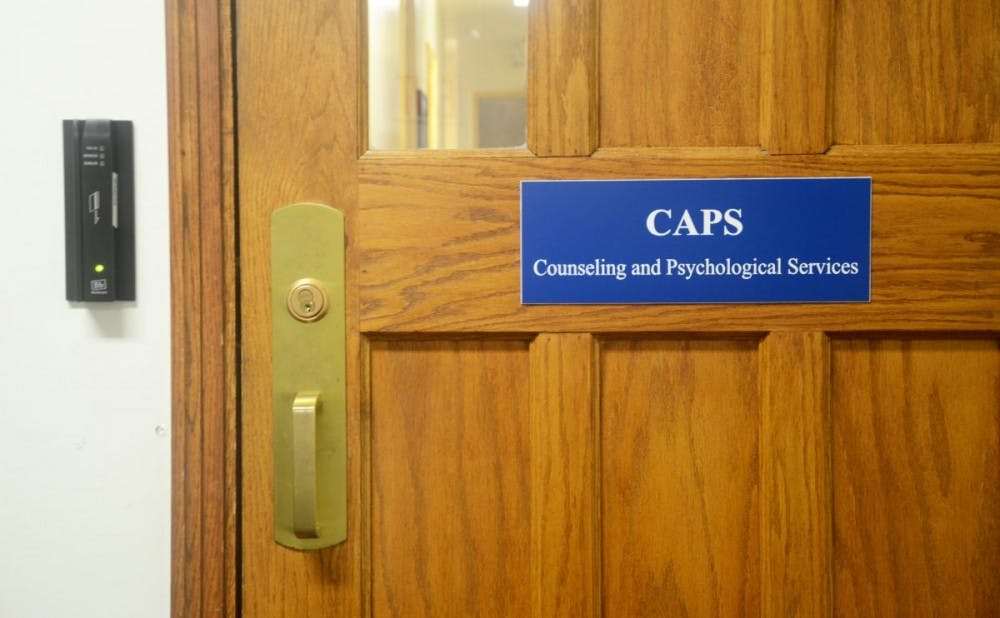Midway through his freshman year, Khalouk Shahbander had hit rock bottom. While his peers went through their everyday lives, Shahbander had not slept in more than four days. He felt anxious, paranoid and depressed, occasionally experiencing panic attacks and hallucinations.
But despite the severity of his illness—he would eventually be diagnosed with bipolar disorder—Shahbander did not want others to see that he was suffering.
Shahbander, like many other Duke students, grappled with the culture of “effortless perfection” at Duke—the idea that Duke students seem to always have everything under control. The term, coined in a 2003 study by the Women’s Initiative at Duke, initially referred to the pressure on women to feel smart, fit, pretty and accomplished, but has since taken on a more global meaning, incorporating men as well. Students believe the pressure to appear perfect has an adverse effect of mental health.
“Anyone on Duke’s campus knows that we have a tense campus culture of ‘busy-ness’—a sense of anxiety, of always having to reach for the next piece of work to do,” said sophomore Razan Idris. “[This culture] tends to always dominate our interactions and conversations, and has a brutal effect on mental health.”
This mentality creates a fast-paced campus environment that leaves students feeling as though they cannot keep up, said sophomore Cole Wicker. As a result, students often find themselves needing support that can be difficult to find from their peers.
“Duke students dismiss each others’ worries by always saying something like ‘But you’re so great, I’m sure you’ll be fine!’ instead of actually offering to help,” Idris said. “It can be hard to get help because people, having idealized each other, can’t imagine that other people are down.”
Part of the problem is that failure is a foreign concept to most of the current generation of Duke students, said Dean of Students Sue Wasiolek.
“Everything that I know about failure says that it makes us stronger,” she said. “That in and of itself is making striving for perfection even more difficult.”
Gary Glass, associate director for outreach and developmental programming for Counseling and Psychological Services, explained that elite, competitive institutions tend to foster an all-or-nothing mindset among students.
“I always joke that there are two grades that people can get—there’s an A and then there is BCDF,” Glass said. “I think [this] creates fear because you now have a 50 percent chance of failure, instead of what’s more realistically a three to five percent chance, given how you compete with the rest of the country.”
This phenomenon persists even though students recognize that being perfect all the time is impossible, Glass added.
“Everybody would acknowledge perfection is prevalent. But at the same time, when I have one-on-one conversations with students they always acknowledge, ‘I know no one is perfect,’” he said. “There is this fascinating paradox that perfectionism seems rampant.”
Students like Shahbander, who recently founded Duke’s chapter of the National Alliance on Mental Illness, have made significant strides in dealing with this issue. In collaboration with CAPS and Duke Student Government, NAMI will host Mental Health Awareness Week next week—the week will include workshops, discussions and performances highlighting mental health issues on campus
Earlier this year, Shahbander wrote about his personal struggles in the All Duke Facebook group in order to draw attention to mental health and elicit support for NAMI.
“At the time that I made the post, I had accepted and had even become comfortable with my struggle,” he said. “Even so, I was still really concerned with how everyone might react. The stigma against mental illness is really powerful and overwhelming. Our culture creates the problem and, ironically, also makes it difficult to solve.”
Glass said Duke students are much more sophisticated in understanding and acknowledging mental health struggles than they were even five years ago, and student efforts have helped lead to a less stressful Duke experience. Along with NAMI, other student-led organizations and initiatives include Peer for You, You’re Not Alone and the Me Too campaign, all of which were introduced in the past four years.
Another University initiative aimed at facilitating conversation and offering help is the DukeReach website, which allows members of the Duke community to submit anonymous reports when they have concerns about the well-being of a fellow student. The program frequently deals with the issue of “effortless perfection,” said Amy Powell, associate dean of students and director of DukeReach.
“It is very common for a student to say to us, ‘It seems to be so easy for everyone else,’” she noted, adding that DukeReach encourages students to open up about their struggles to their friends.
Sharing their problems is usually the first step in realizing that their friends went through similar struggles—and understanding that no one is truly perfect, Powell said.
Shahbander noted the importance of working together as a community to eliminate the campus culture of “effortless perfection.”
“The Duke community is the most valuable therapy anyone could have,” Shahbander said. “Having thousands of peers, professors and deans at your side is something really special, especially when you know that they do care for you and that they will in fact be there to support you in difficult times.”
Get The Chronicle straight to your inbox
Signup for our weekly newsletter. Cancel at any time.

